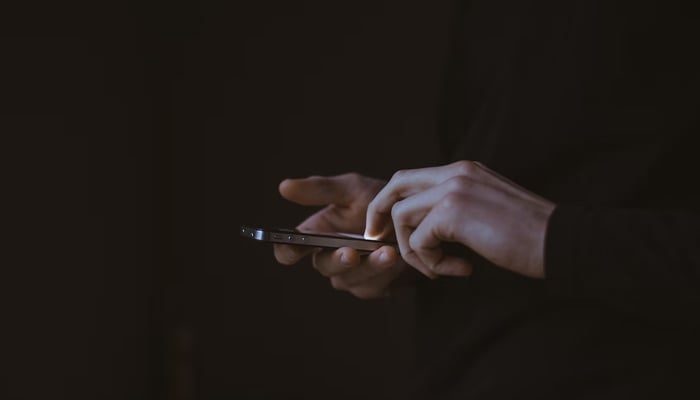Mobile phones carry harmful germs, and you may be spreading them
In the study, the mobile phone screens of six females and four males aged between 22 and 62 were analysed
A study conducted by experts revealed that "mobile phones are carrying more harmful germs and bacteria similar to that of human faeces and toilets" which are spread as people touch their phones and then touch other things with the same hands, cited The Sun.
SellCell study noted that "E.Coli and Faecal Streptococci were found on 100% of smartphone screens" while "food poisoning germ, Bacillus cereus, and pneumonia-causing S aureus, were also found on each of the 20 swabs taken from 10 phones".
Though everyone washes their hands to wipe out germs and microorganisms, however, the research has revealed how dirty and full of germs mobile phones can be, with bacteria similar to cockroaches and human faeces lurking on the devices.
In the study, the mobile phone screens of six females and four males aged between 22 and 62 were analysed.
SellCell COO Sarah McConomy said that they were interested to detect harmful bacteria and the common types of these bacteria on phones.
The shocking results have led to the conclusion that as people's devices carry harmful bacteria, the same as human faeces, they need to sanitise their mobile phones more often to avoid harm to their health, noted McConomy.
P.aeruginosa was also identified which originated from cockroaches, rendering it as if cockroach has been lurking on cell phones, according to the study.
Experts have said that taking phones in bathrooms can expose them to germs within merely five minutes as germs become airborne while flushing. And it is likely that we are spreading these germs to other spaces of our daily lives, the study said.
However, SellCell also noted that the number of these germs is not sufficient to cause any real harm, but stressed people to clean their phones and sanitise specifically while visiting the toilet.
Researchers previously conducted also noted that there are more germs on mobile phones than on an average toilet seat.
-
NHS warning to staff on ‘discouraging first cousin marriage’: Is it medically justified?
-
Ariana Grande opens up about ‘dark’ PTSD experience
-
Dakota Johnson reveals smoking habits, the leading cause of lung cancer
-
Chris, Liam Hemsworth support their father post Alzheimer’s diagnosis
-
Tom Hanks diabetes 2 management strategy laid bare
-
Catherine O’Hara becomes beacon of hope for rectal cancer patients
-
FDA sends 'refusal-to-file' to Moderna over new flu vaccine
-
Cure flu with theses two golden foods












